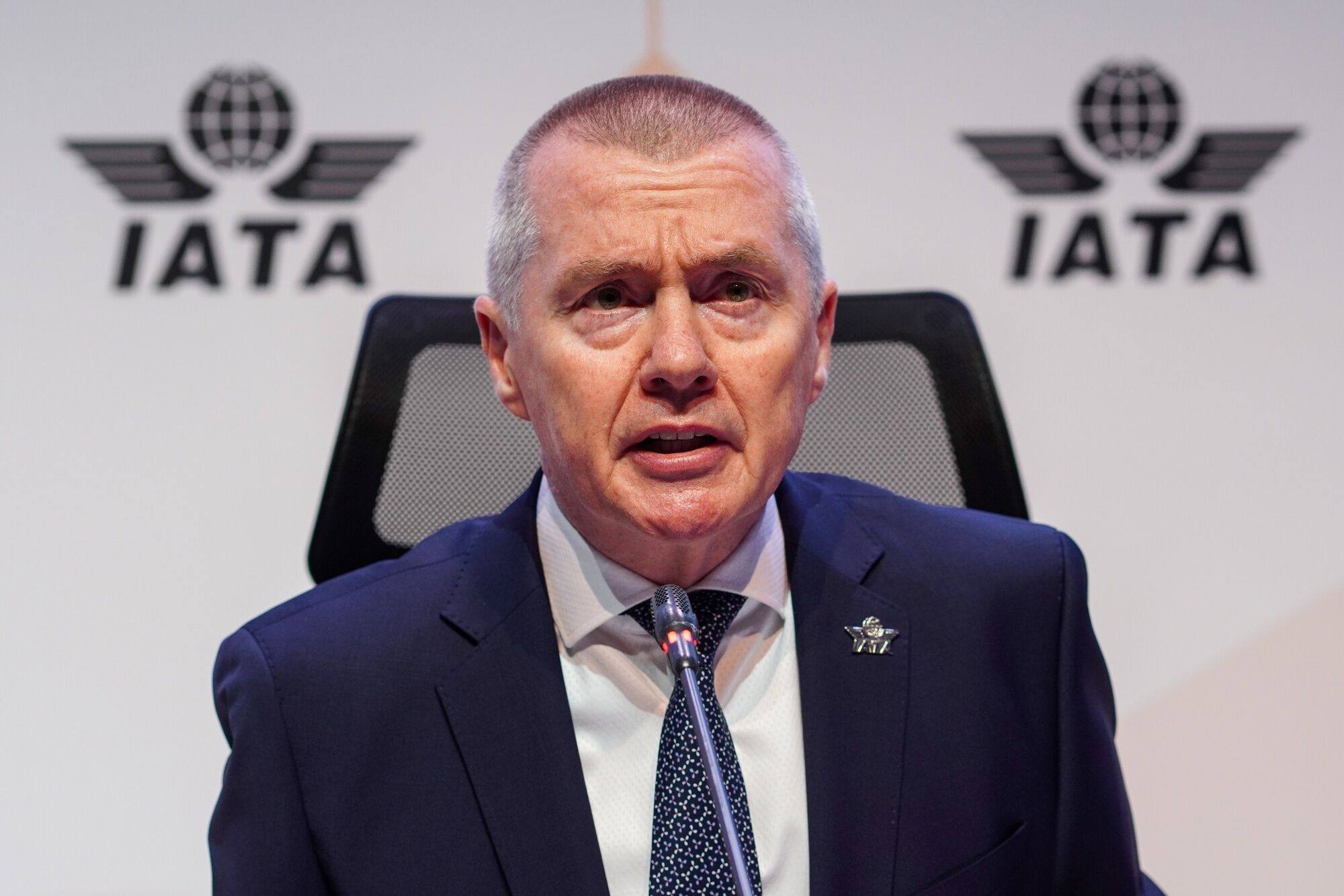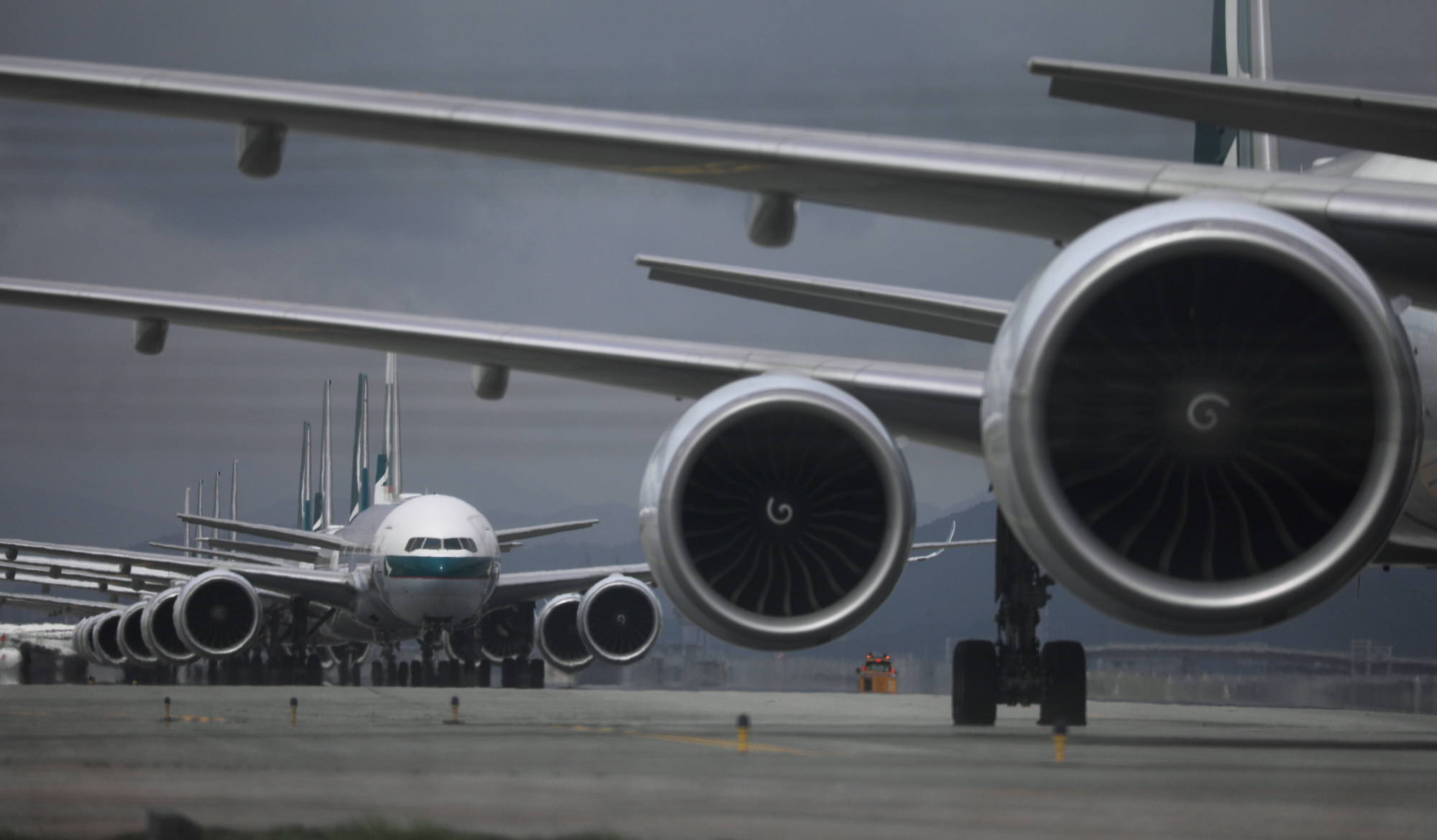
Hong Kong lost ‘awful lot of ground’ to aviation hub rivals, rebuilding will be challenge, global industry body says
- International Air Transport Association chief Willie Walsh says Cathay Pacific faces a complex process in rebuilding its international network
- But outlook for industry positive overall, association says, doubling its previous estimate for profit in 2023 to US$9.8 billion
But the outlook for the industry as a whole was positive, director general of the International Air Transport Association (IATA) Willie Walsh told its annual meeting in Istanbul on Monday, predicting global profits would reach US$9.8 billion this year, double its forecast in December, on the back of stronger demand for travel.
Asked again about his earlier comments, Walsh admitted his timeline was based on a “feeling” about where Hong Kong was in the recovery process compared with rivals.

“It is rebuilding, but I think it has lost an awful lot of ground and that lost ground is going to take time to recover,” he said, adding it was going to be a “very difficult and challenging task”.
Cathay faced a complex process in rebuilding its international network, Walsh argued.
Cathay and its budget arm HK Express have set a target of reaching 70 per cent of pre-pandemic passenger flight capacity by the end of the year and 100 per cent at the end of 2024.
Flights at Cathay budget carrier HK Express ‘back to pre-Covid levels by Friday’
Hong Kong lifted Covid-19 restrictions on international arrivals last December and resumed quarantine-free travel with mainland China in February.
Independent aviation analyst Brendan Sobie said Hong Kong was a year behind other places, such as Singapore, in restoring its aviation industry to 2019 levels.
Foreign airlines had faced challenges in increasing services to Hong Kong International Airport due to shortages of ground handling staff, he said, but added “over time” the issue would be resolved.
“There are still some lingering issues, but it’s better than it was,” Sobie said. “It is a gradual process for airlines that want to add more capacity to Hong Kong, but haven’t been able to.”

IATA on Monday said the global airline industry was expected to make US$9.8 billion in net profits in 2023, and total revenue was expected to grow 9.7 per cent year on year to US$803 billion.
The organisation said net industry losses for last year were now estimated to be US$3.6 billion.
Carriers such as Singapore Airlines and Emirates have posted record profits, ahead of the summer season.
About 4.35 billion people are expected to travel in 2023, about 95 per cent the number who flew in 2019, according to the trade body.
Hong Kong’s Cathay Pacific appoints Ronald Lam CEO as it builds capacity
The pent-up demand to fly has helped to keep airfares between 15 and 40 per cent higher than pre-pandemic prices, according to Hong Kong travel agents.
But the supply of flights is also being affected by delays on aircraft deliveries and the complicated process of bringing back parked aircraft, in addition to higher oil prices, and staff shortages.
IATA chief economist Marie Owens Thomsen said she was “amazed” passengers were not put off by the higher air fares.
“Logically speaking, you would think that this cannot last forever, that at some point, passengers will become more price sensitive,” she said.
Economic uncertainties such as high inflation and rising unemployment rates could have an impact moving forward, Thomsen added.
Mainland China is a crucial component of the recovery of the global aviation industry. In 2019, mainland travellers made more than 150 million international trips, spending about US$1 trillion.
Flights to and from China carried about 2.2 million passengers in the first three months of the year, or 12.4 per cent of the number during the first quarter of 2019, before the coronavirus outbreak, according to the Civil Aviation Administration of China.
Thomsen said questions remained about the shape of the recovery of the Chinese travel market, noting the number of international flights departing from the mainland remained at “a very low level”.
Countries were increasing flights to China, with the “noticeable exception” of the United States, which Thomsen said was due to geopolitical factors.
Most mainland Chinese fly overseas via Hong Kong amid lack of flight options: IATA
On Sunday, IATA vice-president for North Asia Xie Xingquan said airlines were operating 24 flights between China and the United States every week, accounting for just 6 per cent of 2019 levels.
While the demand for more flights existed, “difficulties” in bilateral talks were making it a challenge to increase the number, Xie said.
After flight bans were imposed on Russia in response to its invasion of Ukraine, Moscow retaliated by closing its airspace to some 36 countries, including the US, but not China.
US airlines have said the restrictions give foreign airlines using Russian airspace an advantage, including lower fuel costs, shorter flight times and the ability to carry larger payloads.


